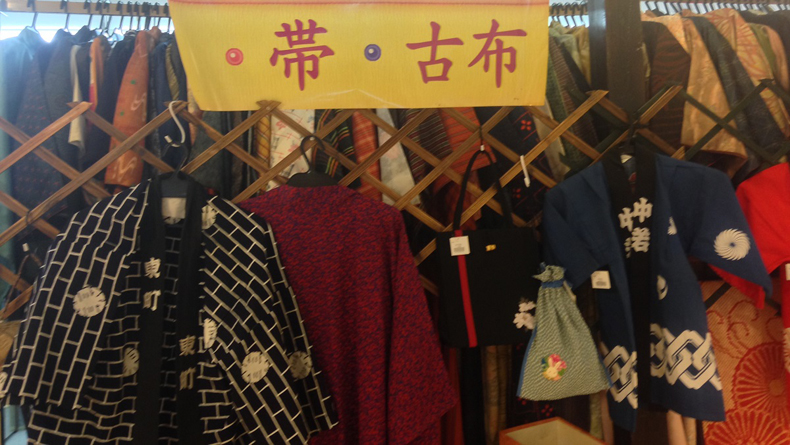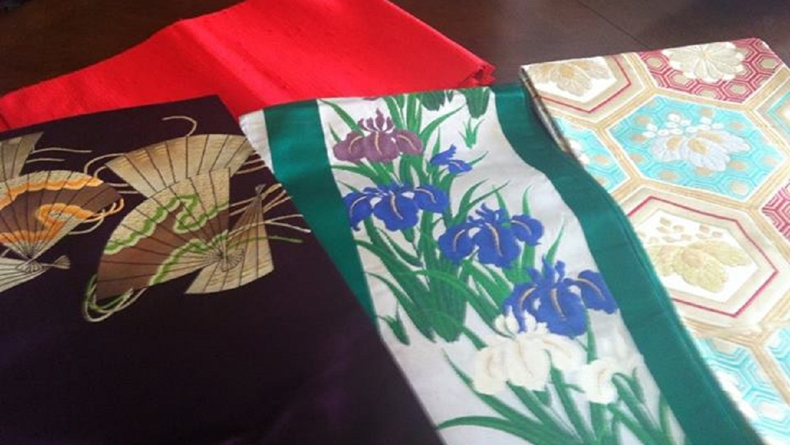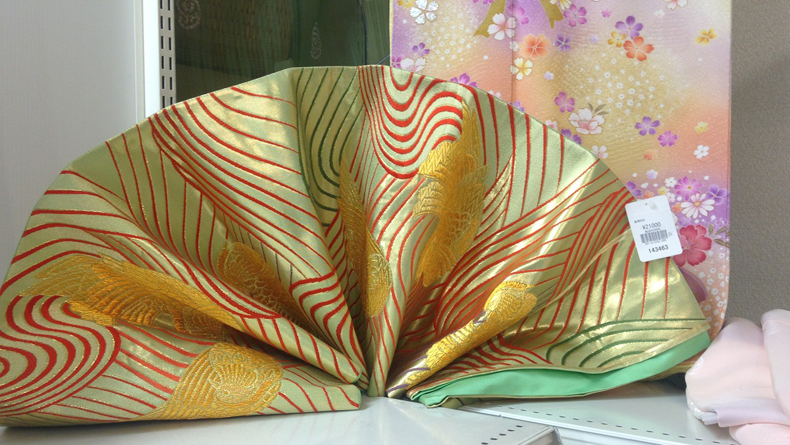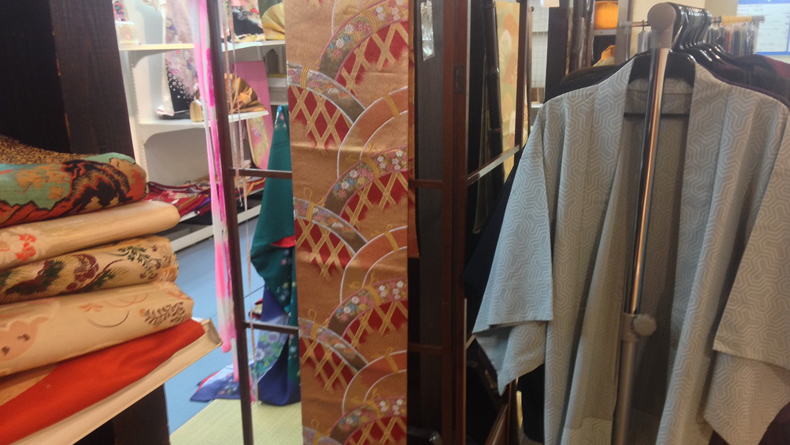Used Kimono Shopping in Tokyo and Yokohama
Buy recycled and old silk clothing items.
Like many people, I am totally smitten anytime I see a lovely girl dressed in a kimono. This feeling also extends to older ladies in their elegant traditional garb and to men and boys wearing the formal hakama.
It obviously takes effort to dress in a kimono. I notice the considered manner in which any movement in this clothing is exaggerated, slowed down and somehow perfected. But most of all I notice the gorgeous, often stunning, silk fabrics from which the garments are made.

Silk production has been ongoing in Japan since about the early fourth century and its ultimate expression is in the beautiful traditional kimonos we see today. The purchase of a child’s first kimono is often a family affair, and people mark the milestones in their lives (first temple visit, reaching the ages of three, five, seven and 20, weddings, funerals and graduations) by purchasing a suitable kimono. The colors and patterns of the silk are dictated by the age, marital status and social standing of the wearer.

The beauty of these garments, and the fabrics they are made of, is not lost on visitors to Japan. Many a temporary resident has taken a wedding kimono, obi or haori back to his or her home country, where it is proudly displayed hanging on the wall, draped across a dining table, or wrapped about a tansu (wooden chest of drawers). My Japanese friends find this practice a little confusing. Their kimonos live preserved in paulownia wooden boxes, bound in tissue and treated with generational reverence. Such attention to actually owning, storing and caring for kimono has become too much for many people. The result is that a thriving rental, ex-rental and recycle trade in traditional clothing has evolved.
There are many great places to buy recycled and old silk clothing items. Flea markets and shrine sales offer cotton yukata, silk obi and formal kimono. Wedding kimono, with their padded abundance, are more often available at tourist venues like the Oriental Bazaar in Jingumae. However my best finds have all been from the “recycle” (second-hand) shops. There is a good selection at the back of the basement vintage store Chicago in Omotesando, but for real value and selection hop the train from Shinagawa down to Tsurumi station, for it is here that you will find Recycle Yokocho.

Recycle Yokocho is one of three shops selling new, used, ex-rental and obsolete kimono and other traditional clothing. The other two sister shops sell new and breathtakingly expensive kimono. The recycle shop proclaims its wares as “antique,” but “vintage” would be more apt. The prices reflect the condition and age of the piece. Obsolete kimonos may never have been worn, but have patterns and designs from another era. These are highly sought-after by a growing band of young people who re-invent them into more contemporary clothing. Expect them to be more expensive.
Thoughtfully organized by color, the dramatic obi are a good choice for Western home decor. Part of the shop is devoted to a tatami area where the best stuff lives. Take your shoes off and immerse yourself in the incredible geometric patterns, representations of classic haiku, views of villages, Mt. Fuji, florals, fans and a myriad of other designs.

The staff are happy to assist customers in English, and have a wealth of knowledge about their subject. To get to Recycle Yokocho, take the west exit from Tsurumi station. Directly ahead is the Fuga 2 building. The shop is on the fifth floor.
The Deets
Address: 5F Fuga 2, 2-2 Toyooka-cho, Tsurumi-ku, Yokohama
Tel: 045-581-7078
Open: 1-6 p.m., closed every second Thursday












are these still open?
Hi Debbie! Yes, Oriental Bazaar in Jingumae, and Chicago in Omotesando are still open and selling used kimono.